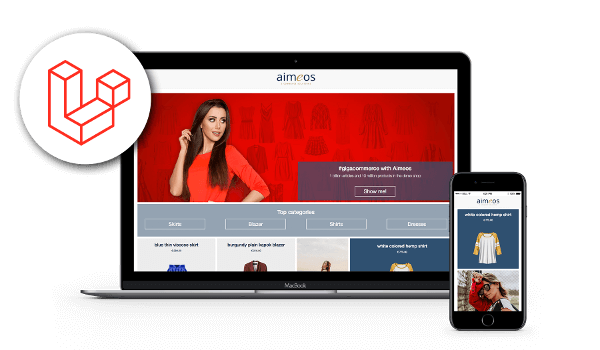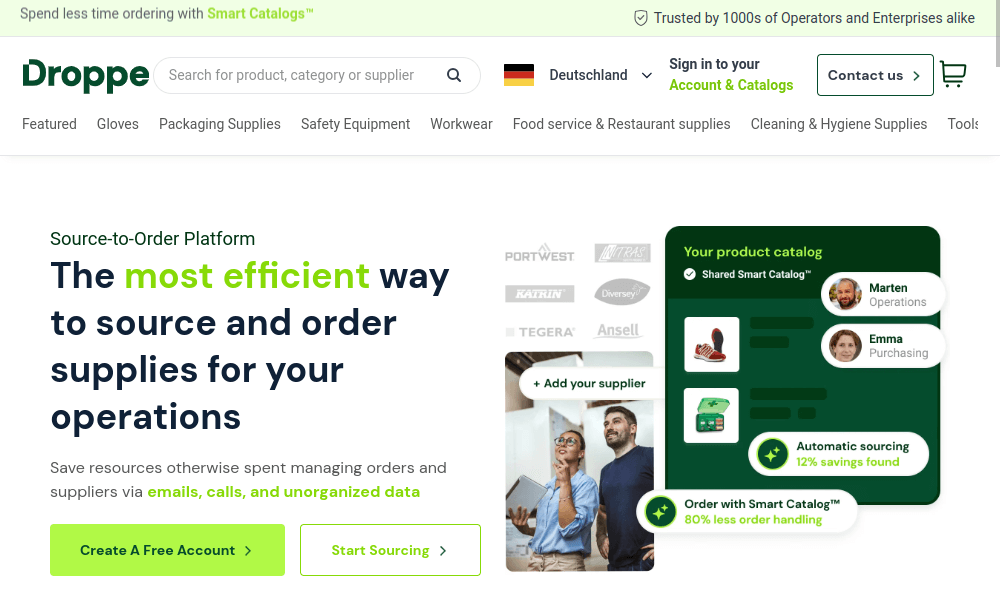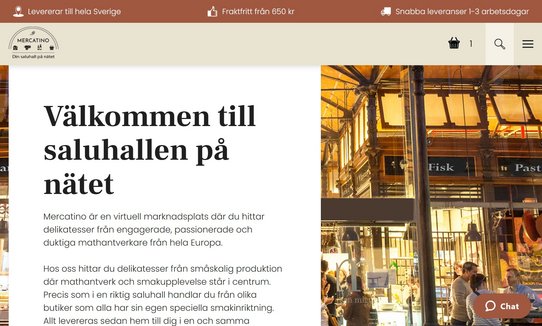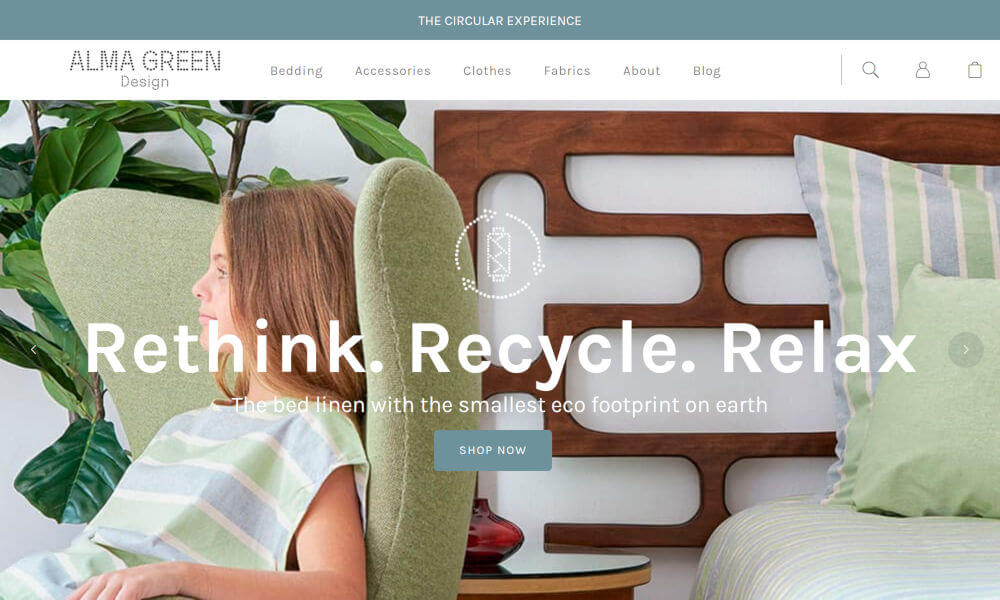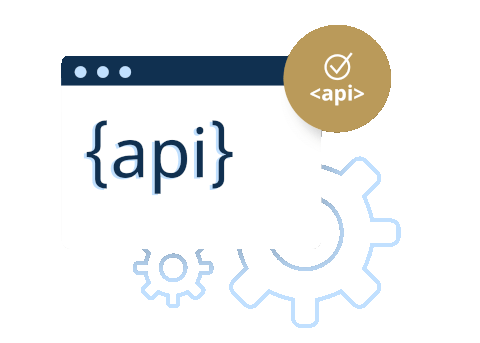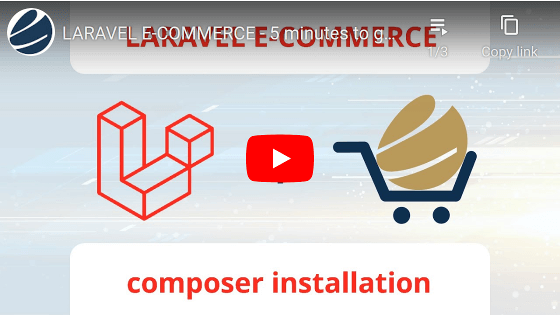Laravel eCommerce – Scalable Online Stores with Aimeos
Build powerful, flexible, and high-performance online stores using the Laravel eCommerce Package by Aimeos. Fully open-source, multi-vendor ready, and packed with advanced features for businesses of all sizes.
Key Features of Aimeos for Laravel eCommerce
Build full-featured, ultra fast online shops, marketplaces or complex B2B applications incl. drop-shipping or affiliate systems with the most widely used, cloud-native and API-first Laravel ecommerce platform that scales from 1 to 1,000,000,000+ items! Aimeos works perfectly on AWS, Google, Azure or any Kubernetes-based clouds.

Multi vendor, multi channel and multi warehouse capable
Build market places, complex B2B applications and reseller/affiliate systems with the Aimeos sites extension, which offers tree-like multi-tenancy out of the box. Create sub-sites for regional or niche marketplaces, for vendors or country specific portals as you need.
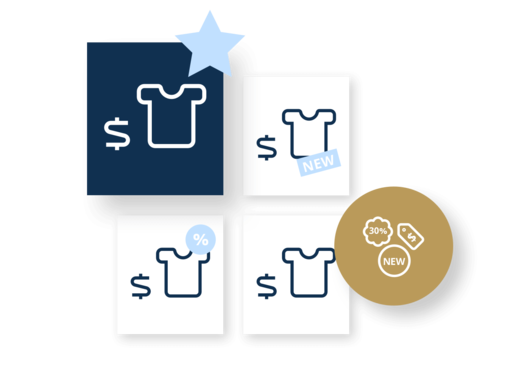
Bundles, events, vouchers, virtual, configurable, custom and group products
All product types you need in your shop and you can combine them with paid downloads, (priced) configurable and custom input attributes. Create complex product types and manage them with different dataset templates.
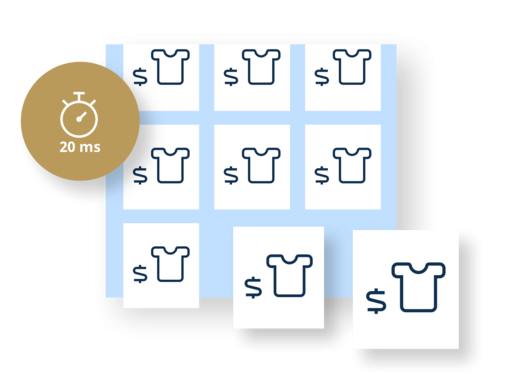
For shops from one to 1,000,000,000+ items that render in 20ms
Grow to a bigger e-commerce platform than Amazon with the #gigacommerce extension. Use ElasticSearch to scale infinitely regarding the number of products on your platform.
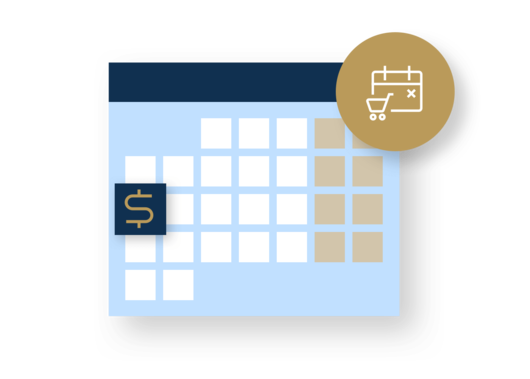
Turn every product into a subscription with recurring payment
Sell products, services or virtual goods in arbitrary time intervals and let Aimeos capture payments from the payment provider when subscriptions are renewed automatically.
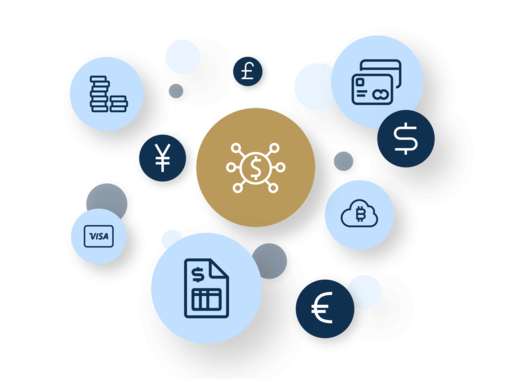
Connect to 100+ payment gateways - Open Source & free
Use the Omnipay PHP library to authorize and capture payments from the worlds major payment service providers like PayPal, Stripe and many others.

Multi-tentant SaaS solutions for eCommerce out of the box
Host an unlimited number of full-featured online shops in one installation for your merchants without additional costs. Each shop has own products, inventories, payment/delivery options and order management.
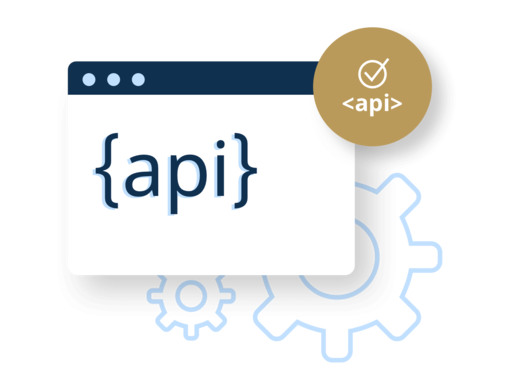
World class JSON REST & GraphQL API
Build custom frontends, progressive web applications (PWA) and native mobile apps using the Aimeos JSON REST API based on the industry standard jsonapi.org specs. Manage your shop content easily by using the GraphQL admin API.
| Aimeos | Bagisto | LunarPHP | |
|---|---|---|---|
| Type / Architecture | Full-featured e-commerce framework as:
| Complete shop platform | Headless e-commerce engine |
| Frontend Approach | Templates, REST+GraphQL API | VueJS templates | Headless – no frontend included |
| Headless Support | Yes – JSON:API + GraphQL | JSON:API but not main focus | Custom API |
| Scalability & Performance | Very high – suitable for small to large shops & multi-channel | Medium – suitable for small to medium shops | Uncertain – No performance tests available |
| Multi-Vendor / Marketplace | Multi-Vendor (free) Marketplace (paid) | Paid extensions | Not available |
| Admin / Backend | VueJS components | VueJS SPA | Filament + Livewire |
| Customizability / Modularity | Very high – modular architecture | Medium – plugin system & extensions | High – pure API layer, flexible structure |
| Learning Curve | Medium/High | Medium | Medium/High |
| License | Open source + paid extensions | Open source + paid extensions | Open source |
| User Rating | 4.8 | 4.6 | None available |
| Best Use Case | Enterprise-level, large catalogs, SaaS / marketplace | Quick-start shops with UI focus | Headless only projects |
Aimeos is used world-wide by thousands of companies for online shops, marketplaces and B2B systems from different segments including fashion, leisure, living, industry and media. Below is a small selection of Aimeos showcases. Discover more Laravel showcases:
The simplest way to Laravel ecommerce
Get your your own shop in less than 5 minutes by simply executing the following command. It will create a fully working Aimeos installation including demo data which you can customize according to your needs.
- # Aimeos Headless
- composer create-project aimeos/aimeos-headless myshop
- # Aimeos Standalone Shop
- composer create-project aimeos/aimeos myshop
Build your custom Laravel ecommerce easily
- use \Aimeos\Shop\Facades\Product;
- $items = Product::uses(['text', 'media', 'price'])
- ->category(123)->text('sneaker')
- ->sort('name')->slice(0, 48)->search();
- use \Aimeos\Shop\Facades\Catalog;
- $catalog = Catalog::uses(['text', 'media']);
- $tree = $catalog->getTree();
- $list = $catalog->getPath(123);
- use \Aimeos\Shop\Facades\Basket;
- use \Aimeos\Shop\Facades\Product;
- $item = Product::uses(['price'])->find('abc');
- $cart = Basket::addProduct($item)->get();
Aimeos Laravel eCommerce FAQ
Is Laravel good for eCommerce?
Laravel is a powerful PHP framework that offers a robust foundation for building modern web applications and is particularly well-suited for eCommerce projects. When paired with Aimeos, it becomes a scalable and extensible solution for enterprise-grade online stores, supporting complex product catalogs, multi-vendor setups, advanced filtering, and headless architectures.
Is Aimeos an application or a library?
Aimeos is both — a complete e-commerce solution and a set of modular components that can be used in different ways depending on your project needs. For Laravel developers, Aimeos is available in three main forms: Laravel Shop Distribution, Laravel Headless Distribution, and the Laravel E-commerce Package.
Is Aimeos Open Source?
Yes, Aimeos is a fully Open Source eCommerce platform for Laravel. The Aimeos Core is licensed under the LGPLv3 (GNU Lesser General Public License version 3), allowing you to use, modify, and distribute the software even in commercial applications, provided that changes to the core are shared under the same license. The Laravel integration package is released under the MIT License, allowing you to freely incorporate, modify, and redistribute it without the obligation to disclose your own source code.
How much does Aimeos cost?
Nothing! Aimeos is completely free. Whether you're building a small online shop or a large-scale e-commerce platform, you can integrate Aimeos into your Laravel projects without paying any licensing fees. It’s open-source software, which means you're free to use, modify, and extend it to suit your business needs.
There are commercial extensions for advanced features like B2B commerce, multi-vendor marketplaces, and scalable gigacommerce. These extensions are maintained by the Aimeos company.
Additionally, the Aimeos company offers professional support services and long-term support (LTS) for mission-critical projects.
Does Aimeos support multiple languages and currencies?
Yes, multi-language and multi-currency are core features of Aimeos. The platform supports an unlimited number of languages, including right-to-left languages like Arabic, and comes with translations for over 30 languages.
Unlike many competitors, Aimeos also offers full multi-currency support. You can assign individual prices for all currencies and combine multi-level tier pricing or block pricing for all product types.
Does Aimeos support multi-vendor setups?
Yes, you can host an unlimited number of vendors in one installation. Each vendor has their own frontend and backend, enabling you to create Laravel eCommerce SaaS platforms.
The Laravel marketplace extension lets vendors manage their own products, which are aggregated into marketplaces for customers to purchase from multiple vendors.
Does Aimeos support B2B setups?
Yes, Aimeos supports complex B2B setups using the Aimeos extensions. This includes multiple portals with shared product data, group-specific pricing, vendor dropshipping, and B2B marketplaces.
Is my required payment gateway supported?
Aimeos uses the Omnipay PHP library with over 100 drivers. The official list of supported payment gateways is available, but additional drivers exist. Quality and compatibility may vary, so check for your provider if needed.
Does Aimeos offer a JSON REST API?
Aimeos provides a JSON REST API based on JSON:API. This API allows seamless interaction between frontend and backend for product search, filtering, checkout, and integration with third-party services.
Is a GraphQL API available?
Yes, Aimeos offers a GraphQL API for administrative tasks, including managing products, categories, orders, and customers efficiently.
Is the Aimeos frontend SEO optimized?
Yes, Aimeos is fully SEO optimized. You can add meta tags for each category and product, and products include schema.org structured data for search engines.
Can Aimeos be customized?
Yes, Aimeos is highly flexible. It has over 2,500 configurable settings, and you can add, remove, or override functionality in your own extensions.
How fast can I launch a Laravel eCommerce store with Aimeos?
With provided setup and templates, a functional Laravel store can be up and running in just a few hours, including full support for products, categories, and checkout workflows.
